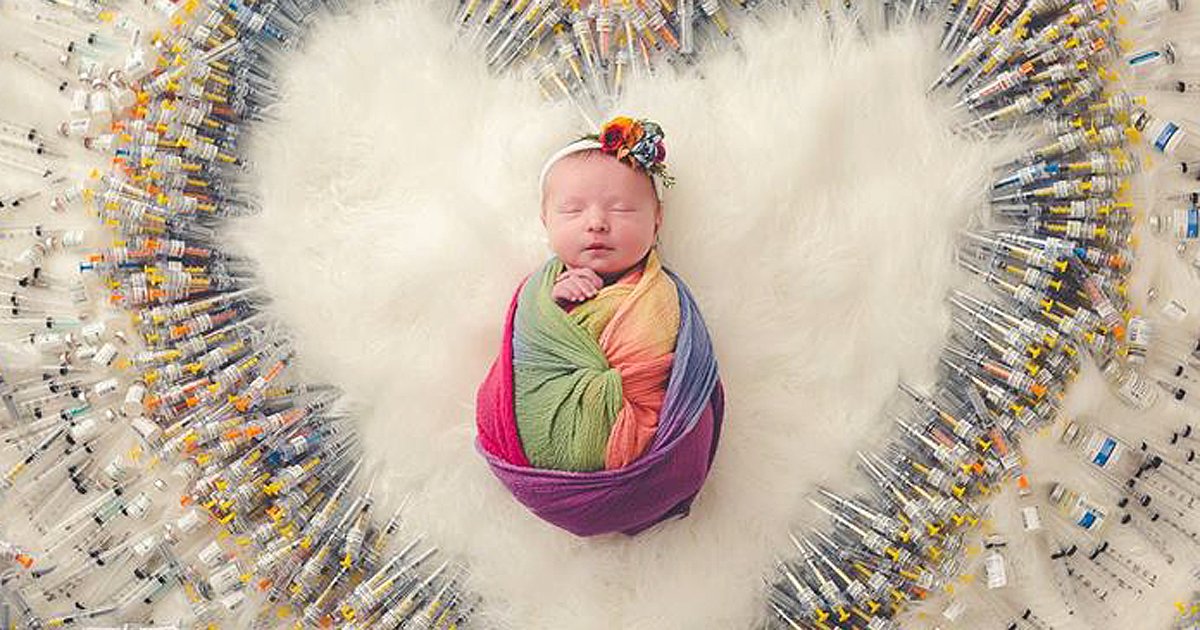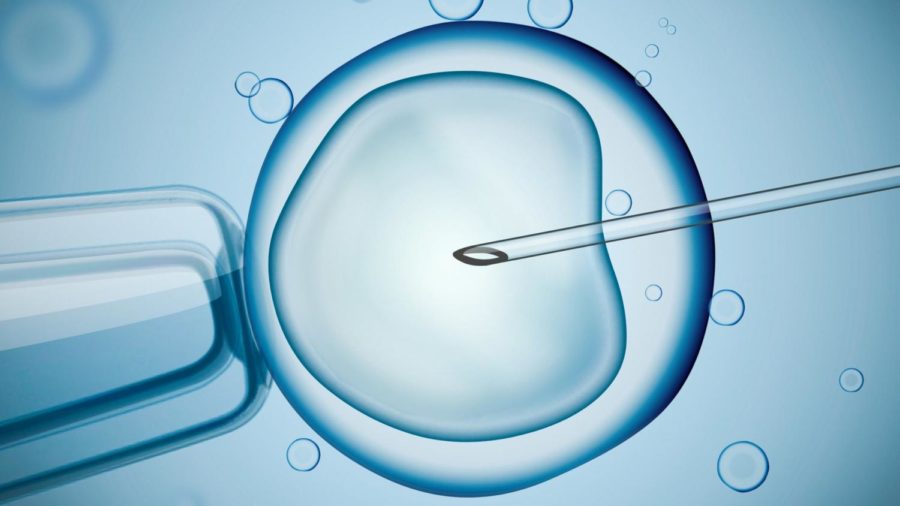The argument for IVF
Laboratory microscopic research of IVF (in vitro fertilization). Digital illustration.
One in eight couples have trouble getting pregnant or sustaining a stable pregnancy. According to the National Survey of Family Growth, 7.4 million women that have received infertility services in their lifetime.
IVF is the most radical of fertility treatments and is sought out by only 5% of infertile couples.
“My husband and I decided we wanted to have a baby and after a year of trying we decided to seek help. Because of my age, IVF was the only option,” said Rebecca, a woman who has undergone IVF treatments.
Despite the emotional toll couples must experience, they are further criticized by a faction of society that believes IVF is wrong for various reasons.
“Critics should mind their own business. Much like abortion, I believe what any woman decides to do with her body is entirely her choice. My husband fully supported me, and that was my only concern,” said Rebecca.
IVF, or In Vitro Fertilization, is a medical procedure where an egg is fertilized by sperm in a test tube or elsewhere outside the body by an embryologist.
At the onset of IVF, fertility medications, such as Gonal-F and Menopur are prescribed to stimulate egg production. A transvaginal ultrasound is used to examine the ovaries and blood tests are taken to check hormone levels over the course of a few weeks of “stimming”.
After a few weeks, the eggs are retrieved through a minor surgical procedure, called an egg retrieval, where a needle is guided through the pelvic cavity to remove the eggs. The eggs are then fertilized by the sperm by an embryologist.
The embryos are then transferred back into the woman’s uterus 3-5 days following fertilization. This is usually painless and, if it is successful, an implantation will occur 6-10 days following the egg retrieval.
When receiving IVF, the medical procedure can be very tough and draining on some women with the possibility of many side effects and risks. The success is not guaranteed, and patients often have to undergo more than one cycle before they are successful.
The average cost of one round of IVF is approximately $12,000-$15,000. This cost does not include any of the medications, which can be anywhere from $1,500-$3,000 per cycle.
In addition to this high cost, there are also some expenses that couples are pressured into, which must come out of their own pockets. These decisions are very hard to make and often lead couples into debt because they choose to spend the money out of desperation.
“Our RE is suggesting to do a Pre-implantation Genetic Testing for any chromosomal abnormalities. We don’t have any family history. I am not sure if we should go for it. It costs 500 out of pocket. Our embryos are frozen; I was 27 when they were frozen. Are there any specific studies that anyone can share with me?” posted one IVF patient on the Facebook page IVF Support.
Coupled with the prohibitive cost and physical discomfort, many people criticize seekers of IVF treatment for medical and religious reasons.

A photo posted on Facebook of an IVF baby surrounded by hundreds of syringes in a heart shape went viral all over social media. This photo represents struggle, pain and the results of joy after the couple was able to make a beautiful baby girl. Although this result cost the couple tens of thousand of dollars and four cycles of IVF, it was only their choice and decision to make. The constant attacks on the ethics of their behavior is unfortunate and unsupportive.
“I guess they never heard of adoption,” posted one commenter.
“They have no idea what they are talking about because they never went through IVF. It’s easy to say something like that without having to give your wife 2-3 shots everyday for weeks and then have to do it again a few months later. This is nothing compared to the emotional toll my wife went through. We did this because we wanted our own child,” said Edwin, Rebecca’s husband.
“Seems like God didn’t really want this woman to be a mother. Just like abortion, we have once again ignored His will. We are damned,” said another commenter.
“Using this logic, I guess diabetics shouldn’t receive insulin infusions, or others heart transplants. It’s a kind of ignorance that’s been around since Galileo,” said Edwin.
According to BBC News, “Life director Nuala Scarisbrick says that even the fulfilment of a couple’s dream of parenthood does not justify what goes on inside the fertility clinic. We are so sympathetic to the plight of people who cannot have children – but IVF is fundamentally wrong,” she says.”
Scarisbrick’s concerns lies in the fact that multiple embryos may be created during one IVF cycle.
According to the interview, she continued, “You are deliberately setting out to create human beings – and then destroy them.”
“We used every embryo we created,” refuted Rebecca.
Another argument against IVF is when the child is born, they are looked at as a product and are less than a human being.
According to USCCCB, “The dehumanizing aspects of some of these procedures is evident in the very language associated with them. There is the “reproductive technology industry.” Children are called the “products” of conception. Inherent in IVF is the treatment of children, in their very coming into being, as less than human beings.”
Calling this treatment dehumanizing is false. The child created is human and biologically linked to both of its parents. The union simply happens outside of the uterus. The love is just as much a part of the union that creates this child.
“Despite being unsuccessful, I would do it all again. The loneliness, discomfort and grief have been worth the attempt. We had to try,” said Rebecca, who fully supports any couple who choose this path to conception.

I am in my senior year at NHS and would like to attend college next year to become an orthodontist. Frankly I enrolled in Journalism because I wanted a...








